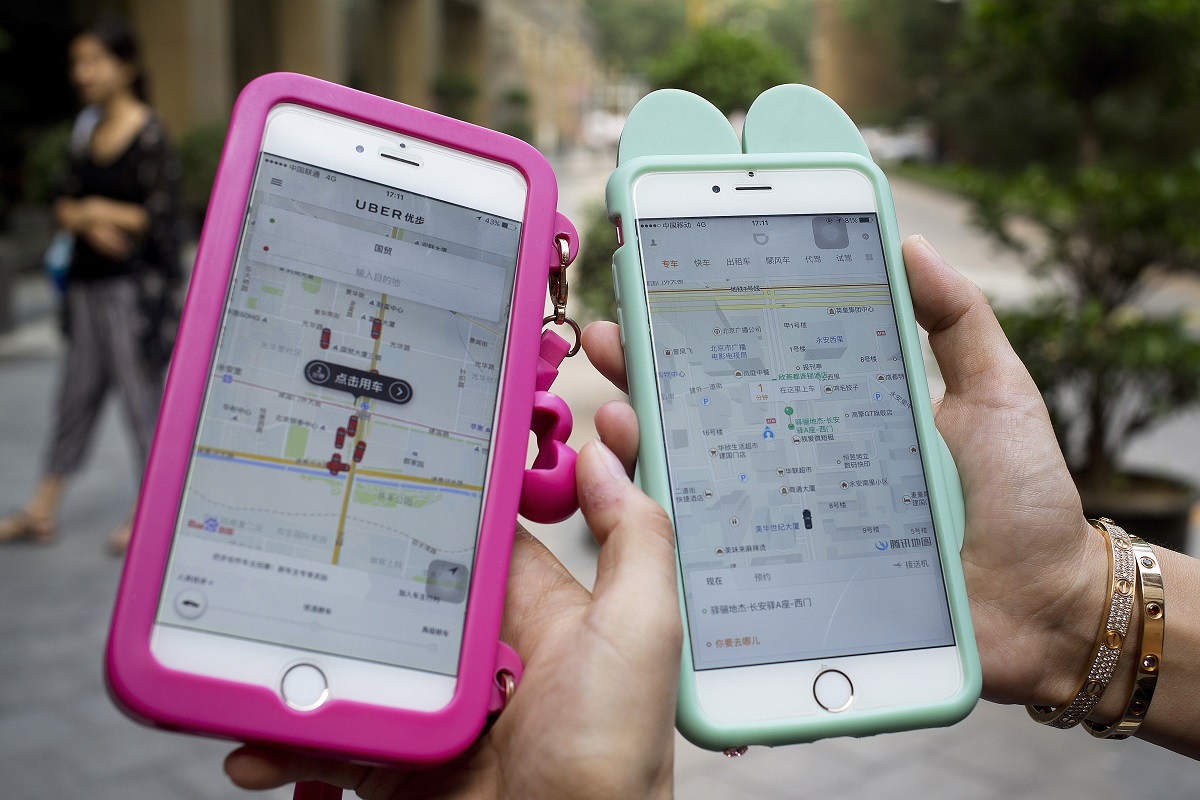
A Go-Jek passenger wears a helmet with the startup’s logo as he rides pillion. Source: Shutterstock/findracadabra
Go-Jek finally looks beyond Indonesia to contest ride-hailing crown
RIDE-HAILING in Southeast Asia continues to grow ever more competitive with the news Go-Jek, Indonesia’s billion-dollar startup Go-Jek will be looking to expand to three or four countries outside its home turf in the near future. With Go-Jek’s expansion, ride-hailing mainstays in the region such as Grab and Uber will be meeting their biggest challenge yet.
While the expansion of its services has been confirmed, Go-Jek’s target countries remain a mystery. CEO Nadiem Makarim did not specify which territories the Indonesian startup would be expanding to. However, according to e27, Nadiem did say that the places Go-Jek would target would be areas with a large population and a preference for cash transactions.
With this statement alone, it appears that Go-Jek will not only be bringing its ride-hailing services to other Southeast Asian countries, but will also be looking to expand the reach of its dedicated digital payment service, Go-Pay.

Nadiem says places Go-Jek would target are areas with a large population and a preference for cash transactions. Source: Facebook/Go-Jek
By entering other Southeast Asian territories, Go-Jek is throwing down the gauntlet to its rivals like Grab and Uber. Over the past few years, for example, the Singapore-based Grab initiated an aggressive push into Indonesia, a country that Go-Jek dominates. Since then, Grab has been working to establish itself as a feasible alternative to the homegrown startup, thought Go-Jek won’t be giving up its home advantage any time soon.
What’s interesting about Go-Jek and Grab though is that while the competition between Go-Jek and Grab in Indonesia appears to be intense, the two companies seem to be engaged in what appears to be a friendly rivalry. Grab, after all, is led and run by Anthony Tan, Nadiem’s classmate during his days at Harvard Business School.
SEE ALSO: Indonesia: Go-Jek scores JD.com investment as ride-hailing war rages on
In a lot of ways, Go-Jek’s push into territories outside Indonesia seems to be in candid retaliation against the aggressive initiatives of other ride-hailing services in the Asian country. Nadiem confirmed this in a recent statement to Bloomberg.
“We’ve always been on the defensive. It’s time to bring competition to their doorsteps,” Nadiem said, according to a Bloomberg report.

Women holding their smartphones to show the ride-hailing apps Uber (left) and Didi Chuxing in Beijing. Source: AP
Considering that Southeast Asia’s ride-hailing market is currently saturated with multiple services, Nadiem stated that Go-Jek is going all-in with its expansion initiatives. In a lot of ways, such a strategy makes perfect sense, since Go-Jek has the resources it needs to make a significant impact on territories outside its home turf. Apart from this, he is also confident his startup has a winning strategy in its expansion.
“I think we’ve cracked the model of a platform that works in an emerging economy where infrastructure isn’t so great,” he said to Bloomberg.
SEE ALSO: Indonesia implements new tariffs on ride-hailing services to protect local taxis
“There is a high likelihood that we would leverage our full stack. If we come in, we come in with the whole sweep of weapons.”
While Go-Jek has not officially announced which countries it will be expanding into, speculations are high that the ride-hailing service would enter some of Grab’s biggest strongholds, such as the Philippines, Thailand, and Vietnam. These countries, after all, meet the criteria that Nadiem mentioned, as these territories have a combined population of 270 million and a strong reliance on cash transactions.
READ MORE
- The criticality of endpoint management in cybersecurity and operations
- Ethical AI: The renewed importance of safeguarding data and customer privacy in Generative AI applications
- How Japan balances AI-driven opportunities with cybersecurity needs
- Deploying SASE: Benchmarking your approach
- Insurance everywhere all at once: the digital transformation of the APAC insurance industry
